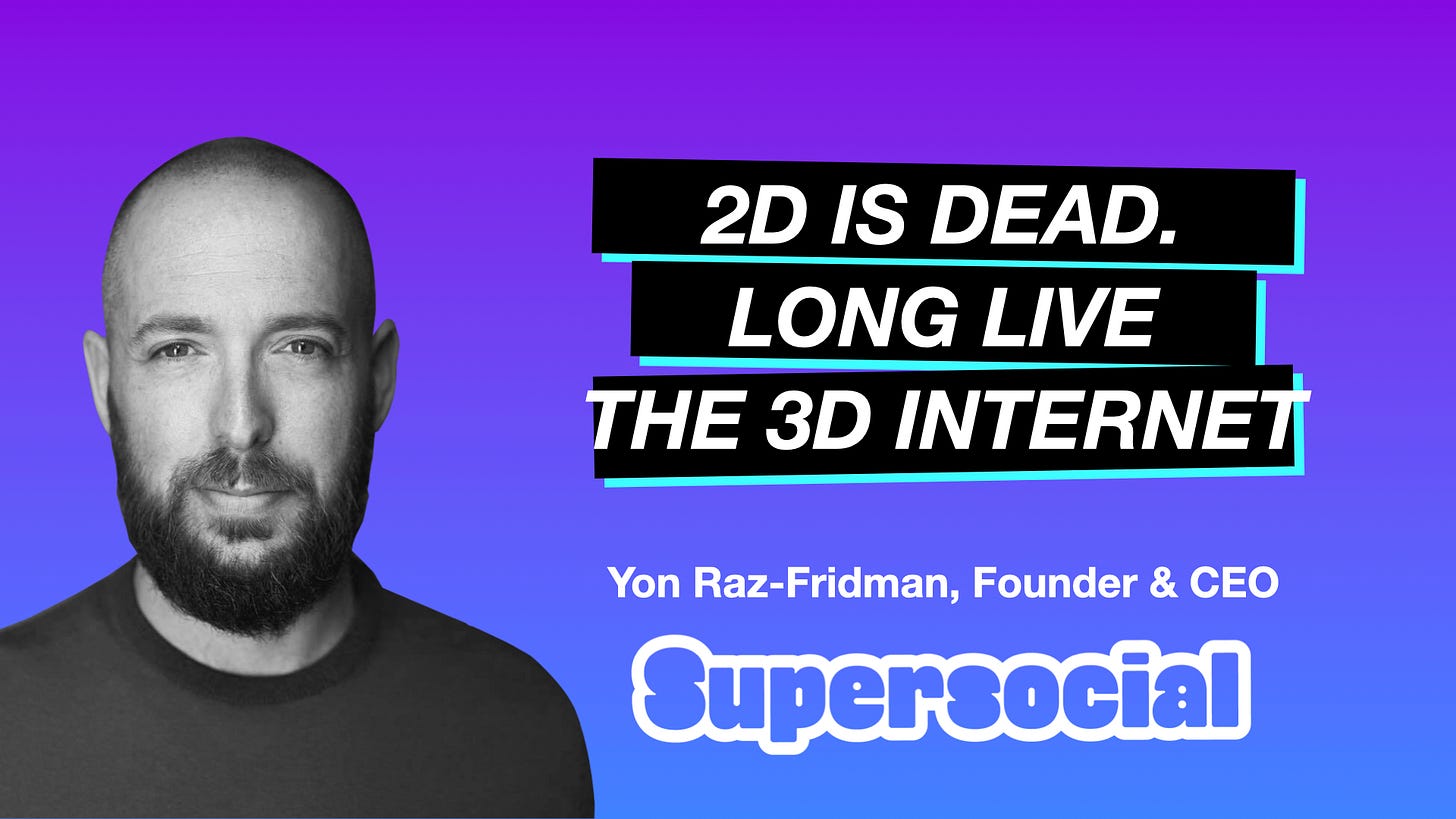What I Read This Week
Roblox is bigger than the entire AAA ecosystem; Biometrically verified digital twin may need to be developed in order for the metaverse to work; Dress To Impress is taking Roblox by storm.
Listen to Into The Metaverse #97, Building the Game Studios of the Future.
Read my Deep Dive on the Rise of Avatars Online
Caught My Attention…
Prolific writer and analyst, Matthew Ball, published a new essay that focuses on Roblox. In “Roblox is Already the Biggest Game In The World. Why Can't It Make a Profit (And How Can It)?”, Matthew dives into the economics of the business and outlining the key reasons why Roblox is not yet a profitable company (from an accounting measures) but also why its future is promising). Ball writes: “With more than 350 million monthly active users, Rblox now rivals the size of the entire AAA ecosystem and towers over core competitors”. Check out the recent podcast episode with Matthew on Into The Metaverse (Part II coming soon!).
Dress To Impress is the newest Roblox sensation, now engaging not only the Roblox community but also people who may have not been Roblox users so far. In “Everyone Is Playing This Girly Dress-Up Game For Kids”, Kotaku’s Alyssa Meracnte writes: “I didn’t really understand the allure, and like many Roblox games, Dress to Impress seems to be mostly played by children. But before long, Dress to Impress (or DTI as those in the know call it) was everywhere—in my day-long charity event, in my friend group, on the streams of high-profile influencers like CaseOh and Madison Beer. Earlier this month, it peaked at well over 370,000 concurrent players, according to fan-run Roblox site Rolimon’s”.
Research indicates a secure, biometrically verified digital twin will need to be developed in order for the metaverse to work. In “Deciding who owns your ‘digital twin’ will make or break the metaverse”, Tristan Greene writes that the metaverse, as hyped by Big Tech and science fiction, remains largely unrealized, with minimal mass adoption and no experience akin to "Ready Player One." However, a recent Italian research paper suggests that the future of the metaverse may lie in the development of digital twins—data-driven, virtual counterparts of users that ensure privacy and secure data management. This research emphasizes the importance of interoperability and data ownership, proposing that users should control their own data, which could be stored in decentralized systems. As the metaverse evolves, these digital twins could revolutionize sectors like healthcare by providing real-time, personalized data insights.
Other Reading…
HTC opens up the metaverse with Viverse Create, a no-code virtual world-building platform
Nike and the LEGO Group Unite to Elevate the Power of Sport and Creative Play
Follow Yon on Linkedin.





Love it, thanks for this